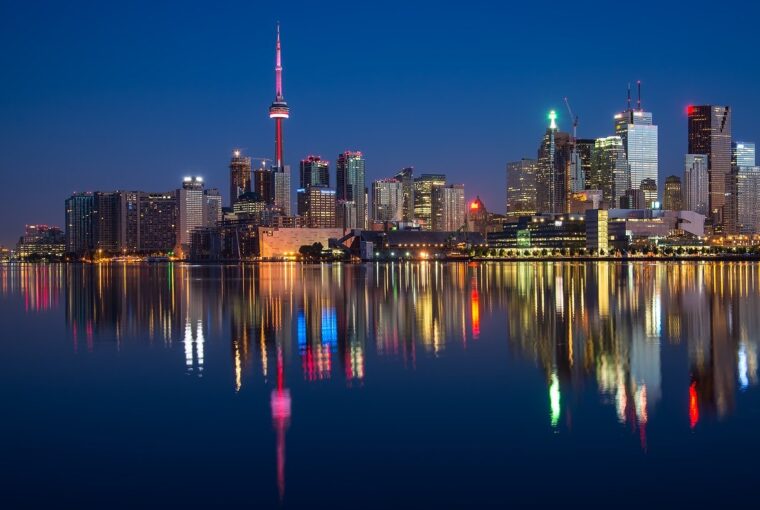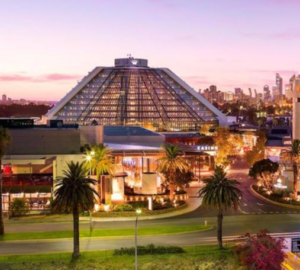In 2017, Canadian authorities arrested nine people for running an organized money laundering scheme in British Columbia for years. The gang had laundered over $100M through B.C. casinos before it was apprehended.
Although shocking to many people, news about money laundering in B.C. casinos didn’t come as a surprise to insiders. According to the Guardian, B.C. casinos and regulators had hours of footage showing people running the Vancouver Model scheme for months prior to the arrest.
The Vancouver Model: What is It?
The Vancouver model is a form of money laundering originally observed in Vancouver, British Columbia. It involves transferring money acquired through illegal means from foreign countries to Canada where it’s laundered inside casinos.
Historically, the Vancouver Model describes money laundering efforts by Chinese gangs. Syndicates with illegal gains in China use proxies to transfer the money to Canadian bank accounts.
In Canada, the gangs receive their cash in hard notes. To avoid trouble with local authorities, they gamble it inside Canadian casinos. The profit they receive is clean money they can use to invest in real estate and other genuine businesses.
The Vancouver Model in Action
In 2017, B.C.’s Attorney General, David Eby, received a call from his province’s gaming regulators warning him about money laundering crimes in the province. Eby swung into action immediately, launching an investigation that resulted in nine arrests. Additionally, the AG inspired new anti-money laundering rules.
According to Eby, the model involved in laundering money from China, where gangs were afraid of running into problems with the local governments. The money was usually laundered in a five-step process:
- Criminals transfer dirty money to Chinese bank Accounts Owned by Money Launderers
- The criminals travel to B.C. where they receive their dirty money in Canadian dollars
- They carry the money to Vancouver casinos using suit cases
- They exchange the dollars for gambling chips
- They gamble their money, keeping profits as clean money
The Impact of Money Laundering in B.C.
By laundering money, criminals get clean money they can use to strengthen their investments. In reference to the Vancouver Model, gangsters from China made in excess of $800M, money used to fuel the opioid crisis in Canada.
Another impact of the Vancouver Model befell the real estate industry. As you’ve probably observed, real estate prices have increased tremendously in B.C since 2010. Interestingly, 50% of property deals made in Vancouver between 2014 and 2017 were completed through structures that conceal the buyer’s identity.
Considering investigations showed Chinese criminals often invested in real estate after laundering money, there’s no doubt the Vancouver Model contributed to price increase in the industry.
Action Taken by the B.C. Government
As we mentioned, the B.C. government took action immediately it learned about the extent of money laundering in local casinos. Attorney General David Eby’s investigation completed with the introduction of new Anti-Money Laundering rules.
Precisely, every casino in B.C. would require 24/7 surveillance. What’s more, everyone entering with more than C$10,000 would have to demonstrate they generate the money legitimately.
Additionally, casinos in Vancouver now must conduct Know Your Customer (KYC) procedures for the sole purpose of eliminating money laundering.
Besides increasing regulation, British Columbia also arrested nine people it said were involved in the Vancouver Model. The suspects were accused of conducting loan sharking, running illegal gambling dens, drug trafficking and more crimes.
New Money Laundering Tactics
The Vancouver Model undoubtedly put all casinos in Canada on high alert. This led to stricter rules designed to reduce the amounts of money people carry to casinos. Sadly, they didn’t eliminate money laundering entirely.
In 2019, the Financial Transactions and Reports Analysis Centre of Canada (Fintrac) released an alarming report showing criminals were changing their money laundering tactics. Precisely, they were shifting from the Vancouver Model to bank drafts.
What is a Bank Draft?
Put simply, a bank draft is like a safer, more convenient cheque. It’s a financial instrument used to complete large transactions without withdrawing cash from your bank account. Unlike cheques, bank drafts don’t bounce.
A bank will only procure you a bank draft if you have money in your account. Note, bank drafts can’t be cancelled. However, if you lose your draft before it’s paid out, you can ask your bank for another document.
Bank Drafts and Money Laundering in Canada
According to Fintrac, criminals have been using bank drafts to launder money at Canadian casinos without a trace. Here’s how the typical scheme pans out:
- A criminal hires a partner in crime (mule/s)
- The mule claims to be unemployed, student or homemaker
- The criminal wires money to the mule—from suspicious sources like trading sites
- The mule procures a bank draft for gambling
- The mule’s profits are wired back to their employer as clean money
The benefit of using bank drafts is that casino love them. As mentioned, a genuine bank draft comes means the house is assured of receiving the stated amount. But cheques bounce often, leaving casinos with loads of bad debts.
Another reason for using bank drafts is that they’re more secure. Criminals no longer need carry thousands of dollars in hockey bags. All the money laundering business is done through wire transfer.
Looking Into the Future
Canada’s law enforcement officers will need to work hard to keep up with changing money laundering techniques. The criminals don’t seem to give up. And they’re becoming innovative. For a decade, authorities have made it their business to end the Vancouver Model.
And after making arrests and stiffening gambling rules, the Vancouver Model seems to be losing pace. As mentioned, though, gangsters are turning to the more secure bank draft, as a safer way of cleaning cash through casinos.
- The Best Slot Games For Low-Budget Play - December 14, 2024
- From Mob Mentality to Digital Thrills - December 10, 2024
- How To Choose The Best Insurance For Barbers? - December 4, 2024








